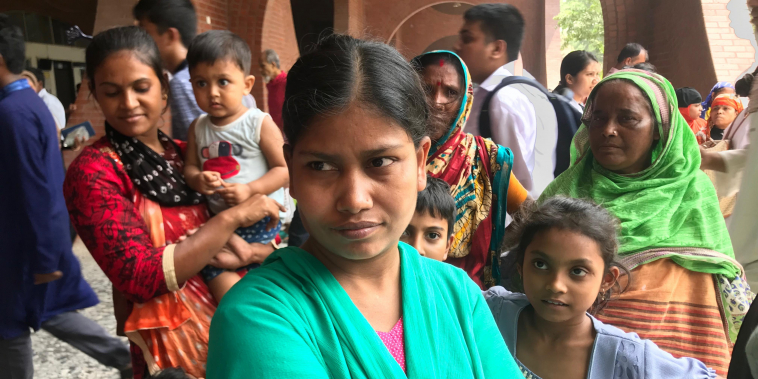Moving together towards UHC
Reaching the last mile leading up to September's United Nations High-Level Meeting (HLM) on Universal Health Coverage.

In the last mile leading up to September’s United Nations High-Level Meeting (HLM) on Universal Health Coverage (UHC) FIGO has joined global health providers and advocates in a wide-ranging digital conversation that comprehensively illustrates the theme of ‘Moving Together to Build a Healthier World.’
As part of Devex’s Healthy Access series, FIGO helped shine a spotlight on women’s health and wellbeing in the ongoing negotiations around the drafting of a UN General Assembly political declaration on UHC.
In a dynamic chat spanning digital health, financing, local community, health workers, primary care, FIGO brought the voices of our 132 OBGYN National Member Societies to call for a UHC draft declaration that calls on world leaders to:
Leave no one behind
Primary care is a whole-of-society approach throughout the life-course which addresses the broader determinants of health. If women are able to access quality, cost effective and efficient primary health care, they are more able to work and earn money, and to care for their children, ensuring that no-one is left behind – but only in a healthcare system that recognises Health For All begins at preconception.
Prioritise data collection and ownership
The 2030 Agenda presents a major monitoring challenge, and lack of reliable and consistent data on women and children means a lack of reliable coverage on all health indicators. Digital has the potential to drastically change how people access health care in the next few years – but only if the right data is available.
We argue that strengthening county health information systems, including implementing maternal death surveillance and response (MDSR), is essential for accurately informing UHC. FIGO also welcomes the World Health Organization (WHO)’s move to present the World Health Statistics 2019 disaggregated by gender for the first time.
Ensure Quality of Care
FIGO aspires to mobilise health professionals to deal effectively with the current and future challenges to health and to take joint actions to build stronger and sustainable quality health care towards achieving universal health coverage.
Health workers are a vital community facing a predicted deficit of up to 18 million by 2030. This shortfall will damage our ability to reach not only the health-related targets of SDG3, but the wider goals which are integrated and indivisible. Women and young people should be empowered as part of the solution: creating jobs for health workers, particularly youth and women, could deliver significant progress towards SDG3, but also SDGs 4, 5 and 8.
Invest in Health
FIGO believes that how a country invests in women and children demonstrates how that country values its future; investing more and smarter, a key theme for UHC, is essential.
A key theme of the UHC movement is ‘investing more and smarter.’ Health financing is an essential consideration of UHC which makes clear that when it comes to health equity, women and children are often the most marginalised. Recent estimates of the huge funding gap required to meet specific women’s health targets including maternal mortality (SDG 3.1) show insufficient global commitment to women’s fundamental human rights.
Move together
The challenges women face in achieving quality of care, and active participation in their own health and rights are not ‘OBGYN problems’ – they are challenges we must tackle together.
Partnership is at the heart of the 2030 Agenda, and as a global federation FIGO is fundamentally committed to many of the targets established to strengthen the means of implementation and revitalise the global partnership for sustainable development. These include effective and targeted capacity-building in low-resource settings (SDG 17.9).
Integrate Sexual Reproductive Health and Rights and gender equity at the centre of UHC
As the global voice of women’s health, FIGO strongly believes that the success of UHC depends on integrating SRHR and gender equality into UHC from the beginning. In recent months, there have been intense debates at the UN over sexual and reproductive health and rights (SRHR).
Universal access to family planning, as part of a broader package of SRHR, is a critical strategy recognising the importance of including women in the design and delivery of their own health and rights. Fundamentally, women have specific health needs that must be addressed.
This was affirmed in the UN’s 2017 resolution on Global Health and Foreign Policy: addressing the health of the most vulnerable for an inclusive society.
Said Dr Anita Makins, Director for FIGO’s PPIUD (post-partum IUD) Project:
“Sexual and reproductive health and rights are fundamental to the health and wellbeing of women, and key determinants for everything that follows: gender equality, education, employment, security...Integrating SRHR into Universal Health Coverage is the surest way of making it truly universal and honestly sustainable.”
This year’s UN High Level Meeting on UHC will be the last chance before 2023, the mid-point of the SDGs, to mobilise the highest political support to package the entire health agenda under the umbrella of UHC, and sustain health investments in a harmonised manner.
Together, we will raise our collective voices and work in partnership to secure the fundamental rights of ‘Health for All’ for all women, everywhere.